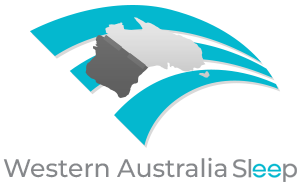What is Sleep Apnoea?
Why treat Sleep Apnoea?
How is Sleep Apnoea Treated?
What is CPAP (Continuous Positive Airway Pressure)?
What is APAP (Automatic Positive Airway Pressure)?
Who can prescribe CPAP/APAP?
How do I start CPAP/APAP Therapy?
Why Sleep Healthcare Australia (SHA)?
What is Sleep Apnoea?
- Sleep Apnoea is characterised by numerous and prolonged pauses/interruptions to breathing during sleep; causing partial or complete obstruction of the throat.
- Gasping or choking during the night may be observed.
- Sufferers will often report unrefreshed sleep and difficulty staying awake, particularly in the afternoon.
- Sleep Apnoea may or may not be associated with snoring.
- These interruptions to sleep may occur hundreds of times overnight.
Why treat Sleep Apnoea?
- People with untreated Sleep Apnoea are approximately two and a half times more likely to have a motor vehicle accident.
- There is a significant link between sleep apnoea and high blood pressure, heart attack, stroke, diabetes and depression.
How is Sleep Apnoea Treated?
- If you have been diagnosed with moderate to severe sleep apnoea, or you are particularly tired during the day, the most common treatment is CPAP (Continuous Positive Airway Pressure).
- QS will recommend the appropriate treatment and facilitate the purchase/hire of CPAP units and accessories.
- CPAP is a small pump that delivers low-pressure room air (Not added oxygen), to keep your throat open and eliminate snoring.
What is CPAP (Continuous Positive Airway Pressure)?
- CPAP is a small pump that delivers low pressure room air (not added oxygen), via a nose/mouth mask, to keep your throat open and eliminate snoring.
- CPAP will treat sleep apnoea and snoring immediately, however, some people take longer than others to experience the full benefit of therapy.
- CPAP is a therapy and should be used when sleeping or napping. Not using the device will result in a return of sleep apnoea, snoring and associated symptoms.
What is APAP (Automatic Positive Airway Pressure)?
- APAP is similar to CPAP, however, the pressure will vary during sleep in response to snoring, changes in body position (snoring and sleep apnoea can be worse on your back) and sleep stage (higher pressures are sometimes needed whilst dreaming).
- APAP may be tolerated better due to a lower average pressure, however, you can discuss the benefits of this therapy with a Qld Sleep scientist who will contact you following your test.
Who can prescribe CPAP/APAP?
- A prescription from Qld Sleep is required before commencing therapy, again via your sleep scientist, on completion of your sleep report.
How do I start CPAP/APAP Therapy?
- Sleep Healthcare Australia (SHA) is the treatment/ equipment retail supplier operated by Qld Sleep, and will work closely with your scientist to provide the best possible treatment outcome.
- SHA will obtain a validated prescription from Qld Sleep to ensure the mask and CPAP/APAP settings are correct.
- If you haven’t already made an appointment with SHA, your sleep scientist can assist, and answer any questions you may have.
Why Sleep Healthcare Australia (SHA)?
- SHA uses Wi-Fi enabled APAP and CPAP devices which automatically upload the previous nights usage and therapeutic data to the “cloud” so it can be viewed the following day by your sleep scientist.
- 30-day money back guarantee *conditions apply.
- Sleep Healthcare Australia will liaise with your Qld Sleep scientist to determine if any changes or modification to therapy are indicated.
- In complicated cases, Sleep Healthcare Australia will contact a sleep physician at Qld Sleep for further direction.
- Servicing metro and regional WA, QLD and Northern NSW.
- Full range of CPAP machines and masks.
- Sleep Healthcare Australia will facilitate any documentation required to obtain a private health fund rebate.



